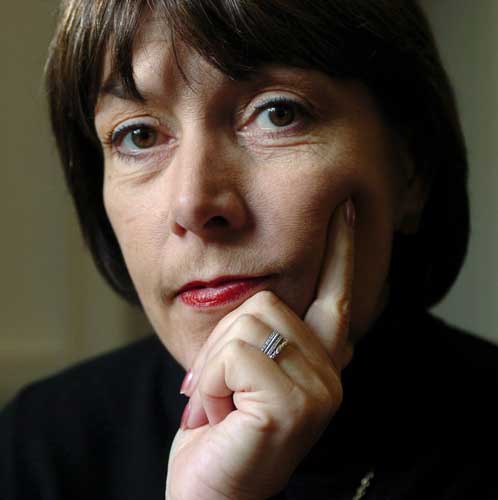More women to get cancer jab
A massive immunisation programme against cervical cancer is to be extended

Your support helps us to tell the story
From reproductive rights to climate change to Big Tech, The Independent is on the ground when the story is developing. Whether it's investigating the financials of Elon Musk's pro-Trump PAC or producing our latest documentary, 'The A Word', which shines a light on the American women fighting for reproductive rights, we know how important it is to parse out the facts from the messaging.
At such a critical moment in US history, we need reporters on the ground. Your donation allows us to keep sending journalists to speak to both sides of the story.
The Independent is trusted by Americans across the entire political spectrum. And unlike many other quality news outlets, we choose not to lock Americans out of our reporting and analysis with paywalls. We believe quality journalism should be available to everyone, paid for by those who can afford it.
Your support makes all the difference.All women aged up to 24 could be offered a vaccine against one of the most common causes of cervical cancer in an extension to a multimillion-pound immunisation programme.
Experts from the Department of Health are considering the case for offering women the latest protection against the human papilloma virus (HPV) as part of a concerted assault on a cancer that affects 2,700 people every year. The threat cervical cancer poses was brought home last week when Big Brother star Jade Goody was informed that she had tested positive for the disease.
Health chiefs are set to begin vaccinating schoolgirls against HPV in one of the biggest public health campaigns in British history. After a long investigation into the programme, the Government will offer routine vaccinations to girls aged 12 to 13 from next month, in a move that some parents complained would "sexualise" their children at an early age. The Government claims that the action against HPV, which is mainly spread through sexual contact, will save up to 400 lives every year.
The Health minister, Dawn Primarolo, said last month that the campaign will be extended to 300,000 girls between the age of 17 and 18 who, under original plans for a catch-up programme beginning next year, would have missed out on the treatment.
Now The Independent on Sunday has established that the Government is planning to offer the vaccine to more than a million women who are at risk.
The proposal to extend the immunisation programme to women aged between 19 and 24 flatly contradicts the recommendations of the Government's advisers, who said the move would not be "cost effective". But ministers have chosen the cheaper Cervarix vaccine over its rival Gardasil.
"The hum-an papilloma virus vacc-ination programme will offer the HPV vaccine to girls and young women aged 12 to 18 years of age," Ms Primarolo revealed in a written parliamentary answer slipped out before MPs went on their long summer holiday.
"We are currently considering the issues around offering the vaccine to those over 18 years of age, including the cost-effectiveness of such an intervention."
The concession provoked astonishment among pressure groups and experts who had been campaigning for the vaccination programme to cover a wider swathe of the population.
But details of the plan received a mixed reception. One expert said the extension was a logical move to increase protection for the female population – but another warned that it could contribute to a decline in the number of women going for smear tests.
Professor Margaret Stanley, an adviser to the HPV subgroup of the Joint Committee for Vaccination and Immunisation (JCVI), which guides government policy on the issue, said the admission was "a remarkable volte-face".
She said: "Vaccinating older girls and women who have active sexual lives will have an effect but it will be much less than immunising the virgins.
"There is the real anxiety that these older girls and women may think that they have had a magic bullet, are protected, don't go for their smears and the cancers aren't picked up at an early stage."
Anne Szarewski, a senior consultant at the Wolfson Institute of Preventive Medicine, said: "This seems a logical approach to the issue and it is in line with the approach other countries have taken. I think if we are serious about tackling this cancer we must immunise everyone we can.
"I am glad that the Government is looking at older women. But if they really want herd immunity, they should be looking at vaccinating boys as well, because they will transmit this virus to girls in the future."
Join our commenting forum
Join thought-provoking conversations, follow other Independent readers and see their replies
Comments